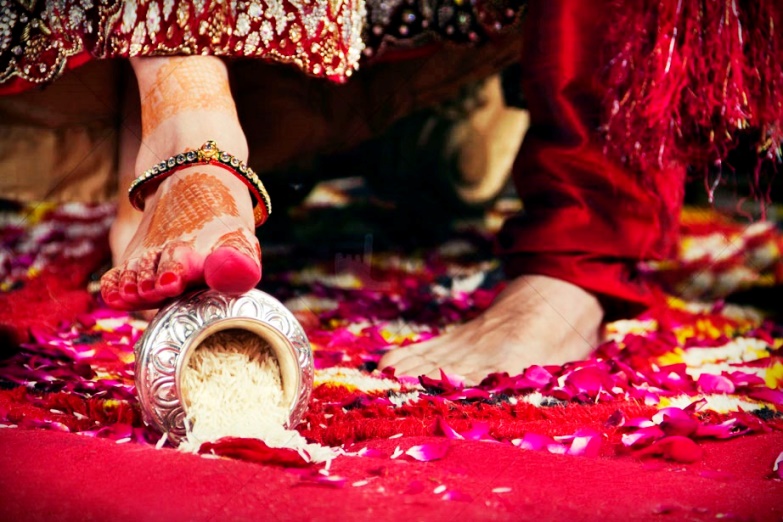
Think of rice, think of Pasupati
Rice is not only important in India for being the most diverse staple food, but it also holds great religious and spiritual significance in the Indian social framework. Rice is an integral part of Indian religious ceremonies and is present in most prayer rituals, and is often served to god. Almost all the regional cuisines of India consider rice to be very important and there are many festivals which are celebrated based on the harvest cycle of this plant. Rice happens to be a symbol of auspiciousness, prosperity and fertility in the Indian society and thus has a great significance in religious rites and rituals. Rice also has a significant part in Indian weddings, where there is a popular tradition of newly wedded bride to throw a handful of rice behind during ‘Vidai’ as she walks ahead with her husband towards his house. But do you know why it is done so? This gesture is carried out by the newly wedded bride as a token of gratitude towards her parents. The bride throws rice to thank her parents for feeding her so well since childhood and for taking care of her so affectionately.
Rice plays a very significant role in a lot of other Indian sanskars, some of which are:
- Wedding Rituals
In Indian society, rice is often sprinkled over the newlywed couple to bless them with a prosperous married life in a Hindu wedding. Rice is thought to avert demons and thus is poured into the wedding fire by the bride and bridegroom. It is also offered by the couple to their patron household deity after the completion of the marriage ceremony and sprinkled around the house by the new bride to get blessings. In certain parts of India, the couple even have to stand on a pile of rice during the marriage ceremony.
- First Feeding Ceremony
Rice plays a key role in the ceremony of Annaprashana, a ritual of first feeding of a child, since it is the first solid food which the baby consumes. The ceremony is conducted when the child attains six or seven months of age, depending on local customs and the health of the child, and is arranged by a priest. The child is fed with simple boiled rice or a sweet rice pudding called kheer under the chanting of appropriate Vedic mantras.
- Education Initiation Ceremony
The ‘Vidyarambham’ ceremony celebrates a child’s first step for his education where he/she is introduced to the world of education by exposing them to their first letters. During the ceremony, a child is assisted to form letters in a plate covered with dry rice grains. Rice is utilized in this ceremony as it represents fortune and blessings for the prosperous development of the child.
- Celebration of Rice
Thai Pongal is a festival celebrated among the Tamils of southern India to mark the end of the harvest season. The day's celebrations include an early morning ceremony of boiling rice with milk and sugar in clay pots which is considered an auspicious sign. The freshly cooked rice dish called pongal, is offered to the sun god Surya to express gratitude for the successful harvest.
Rice holds great importance in Indian religions and traditions. It is considered to be a symbol of prosperity and is thus an integral part of an Indian’s life!
(PC: Google)
